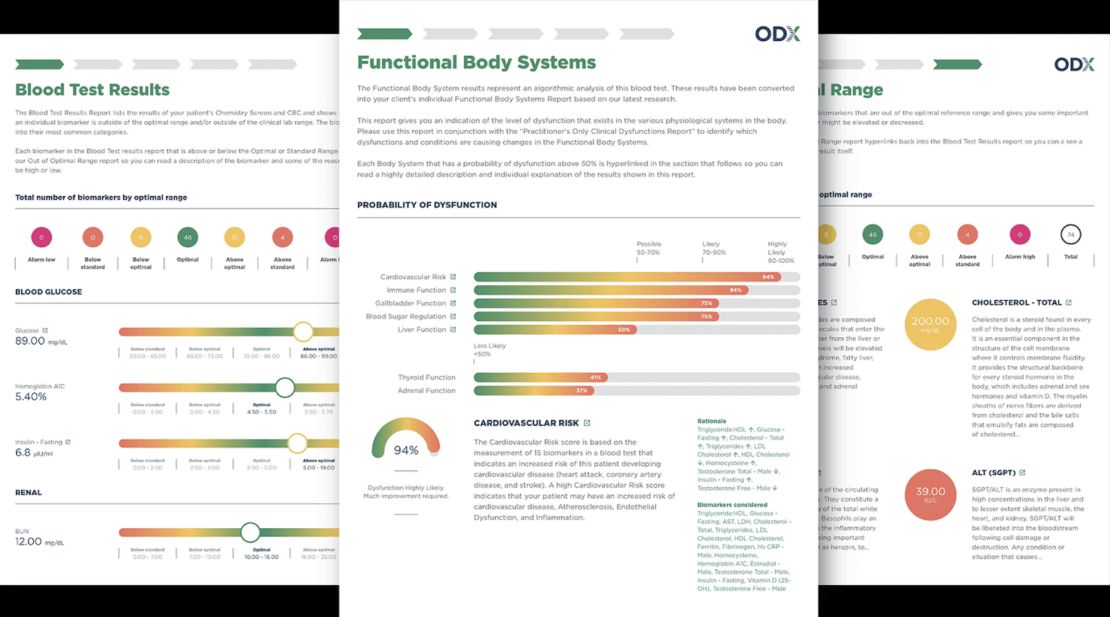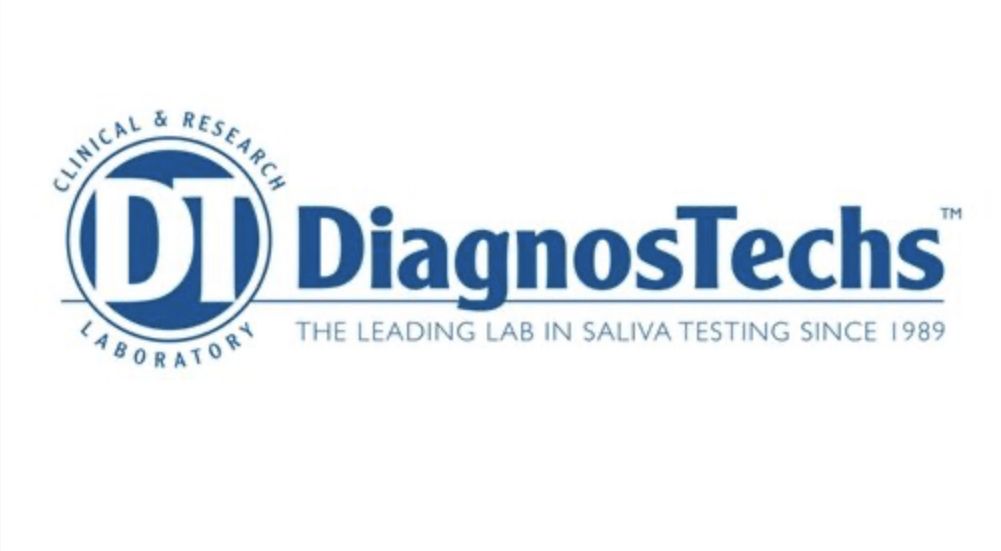
Laboratory Testing
Dr. Kelley offers a variety of laboratory testing and interpretation. Blood Nutrition Analysis information can be found on the "services" page.
What Makes the Functional Approach to Blood Chemistry Analysis Different
When you approach blood chemistry from the functional perspective, you gain a tool to identify and treat dysfunction before it manifests as a disease. Rather than wait for iron deficiency to become anemia or insulin insensitivity to become diabetes, Functional Medicine practitioners intervene early to avoid the negative health outcomes.

Patient-Focused; Not Disease-Focused
In contrast to allopathic medicine’s focus on disease, the functional approach to blood chemistry is a patient-focused one.
An allopathic practitioner looks to categorize a patient’s symptoms under a specific disease to deploy a specific treatment plan tailored to that disease. This approach begins with disease and works back to the patient. Functional medicine does the opposite; it starts with the patient and their concerns, then works towards treating those concerns.
By building a holistic, comprehensive picture of their patients’ health, functional medicine practitioners provide treatment plans tailored to the patient. Ideally, this helps to prevent the disease from occurring in the first place. Going even further, it helps to prevent states of dysfunction — that is, those states of imperfect health that fall through the cracks of disease diagnosis
PAGE UPDATES COMING SOON!
Test kits are either given to you in office to take home for sample collection or stop by to pick up a requisition form to take to the lab.

Discover the Root Cause
Uncover the underlying metabolic, nutritional, and toxic drivers of chronic diseases with MosaicDX’s comprehensive testing solutions.
Mosaic Diagnostics is a world leader in providing testing for metabolic, genetic, mitochondrial, and environmental factors in chronic illnesses. We offer a variety of state-of-the-art metabolic and genetic tests such as:
Allergy and Food Sensitivities
IgG Food MAP with Candida + Yeast
Gastrointestinal Health
Microbial Organic Acids Test (MOAT)
Hormones
Metabolic Assessment
DNA Methylation Pathway Profile
Iron + Total Iron-Binding Capacity Test
Microbial Organic Acids Test (MOAT)
Toxins
Streptococcus Antibodies Profile
Schedule an appointment today with Dr. Lea Kelley on which profile is best for you how to get started!

The Adrenal Stress Index Panel (ASI) is a simple non-invasive test utilizing four saliva samples collected a specified time periods during the day. It was introduced by Diagnos-Techs in 1989 to evaluate stress, a leading cause of morbidity and mortality.
The Bone Health Panel (BHP) provides an assessment of bone health utilizing a combination of non-invasive saliva and urine tests. It measures how fast bone is being lost and and the hormone levels associated with bone health.
The Female Hormone Panel (FHP) is a non-invasive test consisting of eleven saliva specimens collected during specified time periods throughout the menstrual cycle. The expanded Female Hormone Panel (eFHP) includes fourteen additional measurements.
Food Allergy (Sensitivity) Panel)
The Food Allergy (Sensitivity) Panel tests for an immune response to four of the most common food allergens: gluten, soy, milk, and egg proteins. Antibodies to these foods can easily be tested for from a non-invasive saliva sample, providing information that can aid in successful treatment.
The Gastrointestinal Health Panels (GI) are a group of non-invasive screens of the gastrointestinal tract and its function. It includes 12-22 individual, yet related, tests. Stool and saliva samples are submitted by the patient after home collection.
The Male Hormone Panel (MHP) uses non-invasive testing to assess hormone imbalances and deficiencies in men. Using a saliva sample, seven hormones are measured. The expanded panel adds two more hormone tests to the panel.
The Postmenopausal Panel (PostM) provides measurements of six key hormones. The Perimenopause Panel (PeriM) contains the same components as the Postmenopause Panel but is samples twice, 13-15 days apart. The expanded versions add two more hormones to each panel.

GI-MAP™
UNCOVER THE UNDERLYING CAUSE OF CHRONIC ILLNESS
Modern technology has given us a number of insights into the root causes of chronic illness. Nowhere has this insight been more revolutionary and impactful than in the human gastrointestinal (GI) tract. The GI tract is home to an entire ecosystem of microorganisms (known as the microbiome), living in a symbiotic relationship with its host. These microorganisms do far more than just reside within us - they are essential for life and health. They are responsible for many important functions such as vitamin synthesis, hormone production, immune system regulation, and communication with the neurological system. More than ever before, medical research has established a link between health benefits or disease risks brought about by these microorganisms that inhabit the human body.
In the last few decades, DNA analysis has transformed the field of microbiology. Almost all research of microbes utilize DNA methodology. The NIH has followed suit with initiatives including the Human Microbiome Project, which characterized the microbiome of 15 habitats of the body using DNA analysis.
More than ever before, we are keenly aware of the health benefits or disease risks brought about by the microorganisms that inhabit the human body. Culture techniques, previously the standard, left up to 50% of bacterial species virtually invisible. Because most of the bacteria of the GI tract are anaerobes, culture based methods cannot cultivate them which leaves a large blind spot for clinicians when trying to diagnose the source of infection.
Diagnostic Solutions Laboratory is pleased to partner with you to bring true ADVANCES in microbial testing. Our commitment to laboratory medicine is to utilize proven methodologies that are accurate and reliable. We are pleased to offer clinicians the first of many advances, the GI-MAP™ (GI Microbial Assay Plus).
GI-MAP™ Advantages
- True DNA/PCR Assay
- Rapid TAT – Results in 3-7 days!
- Quantitative PCR Pathogen Testing
- High Sensitivity and Specificity
- Antibiotic Resistance Genes
- Virulence Factors
The GI-MAP stool test utilizes cutting edge, Quantitative PCR technology to provide a true DNA/PCR based stool test. This technology has high sensitivity, specificity and a rapid turnaround. The GI pathogens include bacteria, parasites and viruses.
Diagnostic Solutions uses the latest and most advanced DNA testing to assess:
- Levels of healthy bacteria
- Pathogenic bacteria
- Parasites
- Yeast
- Viruses
And advanced metabolic testing for:
- Inflammation
- Immune function
- Digestion and absorption
Continuing with this platform, the GI-MAP measures opportunistic organisms, normal flora, fungi, parasites and antibiotic resistance genes. And the Plus refers to immunologic markers for GI health and function including SIgA, Elastase, Calprotectin and Anti-gliadin testing.
SCHEDULE A CONSULTATION WITH DR. LEA KELLEY TODAY! (310)545-6528
Flex C
Flexustomized Test Panels
The Male THormone Panel (MHP) uses non-invasive testing to assess hormone imbalances and deficiencies in men. Using a saliva sample, seven hormones are measured. The expanded panel adds two more hormone tests to the panel.
The Gastrointestinal Health Panels (GI) are a group of non-invasive screens of the gastrointestinal tract and its function. It includes 15-22 individual, yet related, tests. Stool and saliva samples are submitted by the patient after home collection
The Food Allergy (Sensitivity) Panel tests for an immune response to four of the most common food allergens: gluten, soy, milk and egg proteins. Antibodies to these foods can easily be tested for from a non-invasive saliva sample, providing information that can aid in successful treatment.
The Female Hormone Panel (FHP) is a non-invasive test consisting of eleven saliva specimens collected during specified time periods throughout the menstrual cycle. The expanded Female Hormone Panel (eFHP) includes fourteen additional measurements.
The Bone Health Panel (BHP) provides an assessment of bone health utilizing a combination of non-invasive saliva and urine tests. It measures how fast bone is being lost and the hormone levels associated with bone health.
The Adrenal Stress Index (ASI) panel is a simple non-invasive test utilizing four saliva samples collected at specified time periods during the day. It was introduced by Diagnos-Techs in 1989 to evaluate stress, a leading cause of morbidity and mortality.